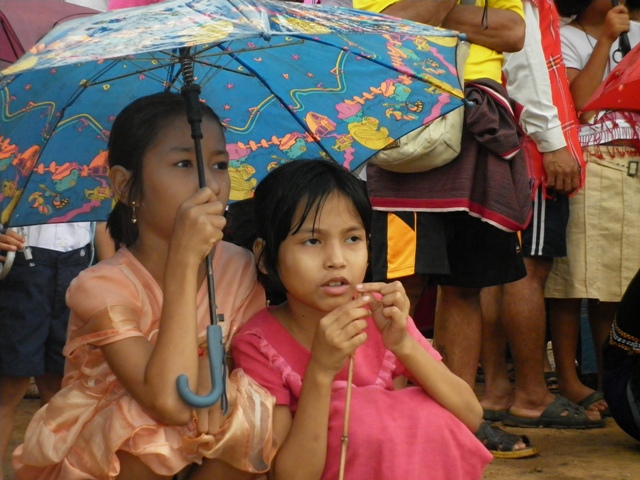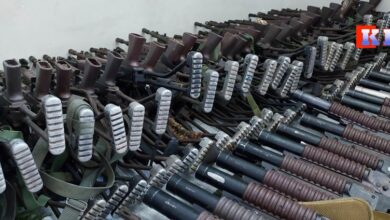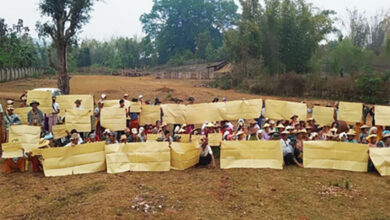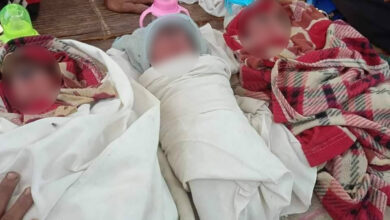Refugees: “Talk to us and listen to our voices…”

Naw Day Wah Htoo lives in Mae Ra Ma Luang refugee camp on the Thai Burma border and talks to Karen News about her life living on the margins. Karen News reports.
“Living in a refugee camp we are not allowed to go outside to find work. When I hear talk about refugee repatriation, I have doubts about it as the current situation [in Burma] is not secure yet.”
Naw Day Wah Htoo, 22, explains that she is uncertain what life back in Burma would be safe as there is still conflict in ethnic areas suchas Kachin and Shan states.
“Although the KNU [Karen National Union] and the government signed a preliminary ceasefire agreement, there are still fighting, conflicts and human rights violations in other ethnic areas. Some refugees have been living in the refugee camp for a long time so they don’t have a place to go back to anymore. Even though, the [Burma] government have said they have made plans for people to return, nothing is certain yet.”
Naw Day Wah Htoo said life in the camps is hard especially now that international aid is being cut.
“Reducing the support in camps creates more difficulties for us. We don’t have sufficient medicine or medical services. For patients who have critical diseases that can’t be treated here in the camp because medical services don’t provide transportation and referral services to Mae Sariang anymore it is difficult. I feel like we are being neglected, education support is also being cut.”
Naw Day Wah Htoo said it is important that refugees do not lose the protection of the international community.
“We want the civil society organizations and other organization to keep protecting and supporting refugees. Although the KNU and the government have been holding rounds of peace talk, they haven’t reached a genuine peace yet.”
Naw Day Wah Htoo called for people in power to listen to what refugees wanted.
“We want them to listen to our voices and help with our needs. We want our decisions to count and we don’t want to be pressured into doing something we don’t want. We want them [groups] to decide after asking the refuges opinion. The Mae Fah Luang Foundation survey’s questions are questions that we did not want to answer. We don’t want to be forced to go back against our wishes.”
Naw Day Wah Htoo said authorities do not take time to hear what refugees are saying they want.
“For the [Burma] government, the KNU or other organizations, before they make decisions about refugees issues, I want them to seek refugees’ opinions and listen to their decision first.”
Saw Kyaw Kyaw Sein, health worker who lives and works at Tham Hin refugee camp, spoke to Karen News about life in the camp.
“Refugees are surviving on basic rations that is provided to the camp, sometimes it is not enough. Some people have to go out and work to supplement their food rations. No one wants to live in camps, some want to go to a third country, but some want to live in Thailand. Just a few want to return to Burma.”
Saw Kyaw Kyaw Sein, 23, states that he does not want to return to Burma.
“I don’t want to go back. If I go back, I don’t want to live in place that they [government] arranged for us and that we don’t have any money to invest or any land to work for our livelihoods. Living in camp is a little bit better than living back there. There are other serious [IDPs] problems than ours in terms of living conditions. I just want to say that they [government] should resolve those issues first.”
Saw Kyaw Kyaw Sein thinks that many young people in the camp want to resettle, as it will give them the opportunity to have a better quality of life.
“As for us youth, we want to resettle to a third country. We see that we would have better opportunities to build up our life, including our education. Learning in camp, we don’t have any guarantee for jobs after we graduate from school. It is really difficult here, as the education that we get in the camp is not recognized by the government or the international community.”
Saw Kyaw Kyaw Sein stresses that camp authorities discriminate between refugees.
“There is a discrimination between new arrivals and old refugee. There are obstacles for applying for resettlement to a third country. I don’t want them to discriminate like that. If they send refugees back to Burma, the refugees have to go back. However, if the government provides loans or land for livelihoods for the returnee, it will be possible to go back. If not, it will be hard to restart our lives.”
Naw Ler Htoo, is a teacher at Mae La refugee camp and spoke to Karen News about what her life is like.
“I have been living in the camp for five years. The longer I live here, the more I start to feel depressed. Now, we are hearing yet another depressing message about refugee repatriation. The situation is not possible for us to go back. There are ongoing conflicts and human right violations in ethnic areas. I heard that the households in Rangoon are being forced to relocate. If the government neglects the human rights violations that are happened in Burma’s cities, how can we trust the government?”
Saw Kyaw Kyaw Sein, 43, said it is stressful that there is no official information that refugees can trust, as they keep hearing rumors that refugees will be sent back.
“UN registered or unregistered refugees, we all get stressed when we hear about refugee repatriation. The situations cannot be trusted, there is no guarantee for our safety. Both registered and unregistered refugees will have to return. We know it is not possible to live in camps in Thailand for our whole life. But it is impossible at this time for us to go back.”




